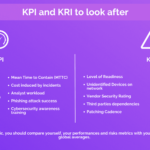Effective Budgeting Techniques to Help Manage Your Money and Achieve Financial Freedom
Achieving financial freedom often starts with effective budgeting. While it may seem tedious, a well-crafted budget is your roadmap to managing money, reducing stress, and paving the way for long-term financial success. Here’s a guide to some proven budgeting techniques that can help you take control of your finances.
1. Set Clear Financial Goals
Before diving into budgeting techniques, it’s crucial to define your financial goals. Are you saving for a vacation, a new car, or retirement? Specific goals will guide your budgeting process and give you something concrete to work towards. Ensure your goals are SMART—Specific, Measurable, Achievable, Relevant, and Time-bound.
2. Track Your Expenses
Understanding where your money goes is the first step in effective budgeting. Use tools like budgeting apps, spreadsheets, or even a simple notebook to track your daily expenses. Categorize them into fixed (rent, utilities) and variable (eating out, entertainment) expenses. Regular tracking will highlight areas where you can cut back and help you stay mindful of your spending habits.
3. Create a Zero-Based Budget
A zero-based budget means allocating every dollar of your income to specific expenses, savings, or debt repayment, so your budget’s total income minus total expenses equals zero. This approach ensures that you’re not just budgeting to save but actively assigning every dollar to a purpose. Start by listing all sources of income, then allocate funds to your necessities, savings, and discretionary spending.
4. Prioritize Your Needs
When creating your budget, prioritize essential expenses such as housing, food, and utilities before allocating funds for discretionary items. The 50/30/20 rule can be a helpful guideline here: 50% of your income goes towards needs, 30% towards wants, and 20% towards savings and debt repayment. Adjust these percentages based on your personal situation and goals.
5. Build an Emergency Fund
An emergency fund is a critical component of a healthy budget. Aim to save at least three to six months’ worth of expenses in an easily accessible account. This fund acts as a financial buffer for unexpected expenses like medical emergencies or car repairs, reducing the likelihood of going into debt.
6. Use the Envelope System
For those who struggle with overspending, the envelope system can be a practical solution. Allocate cash for various spending categories—like groceries or entertainment—into separate envelopes. Once the cash in an envelope is gone, you can’t spend any more in that category for the month. This technique encourages you to stick to your budget and can help you become more disciplined with your spending.
7. Review and Adjust Regularly
A budget is not a one-time task but an ongoing process. Regularly review your budget to ensure it aligns with your goals and financial situation. Life changes—such as a salary increase or unexpected expenses—may necessitate adjustments to your budget. Monthly or quarterly reviews can help you stay on track and make necessary modifications.
8. Leverage Technology
In today’s digital age, numerous apps and tools can streamline budgeting. Platforms like Mint, YNAB (You Need A Budget), or Personal Capital offer features that automate tracking, provide insights into spending habits, and help you manage your finances efficiently. These tools can simplify the budgeting process and make it easier to stay disciplined.
9. Seek Professional Advice
If budgeting feels overwhelming, consider consulting a financial advisor. They can provide personalized advice, help you create a realistic budget, and offer strategies for achieving your financial goals. Professional guidance can be especially beneficial if you have complex financial situations or need help with investments.
Effective budgeting is more than just balancing your checkbook—it’s about creating a financial plan that supports your goals and promotes financial security. By setting clear goals, tracking expenses, prioritizing needs, and using tools and techniques to manage your money, you can take significant steps toward achieving financial freedom.









